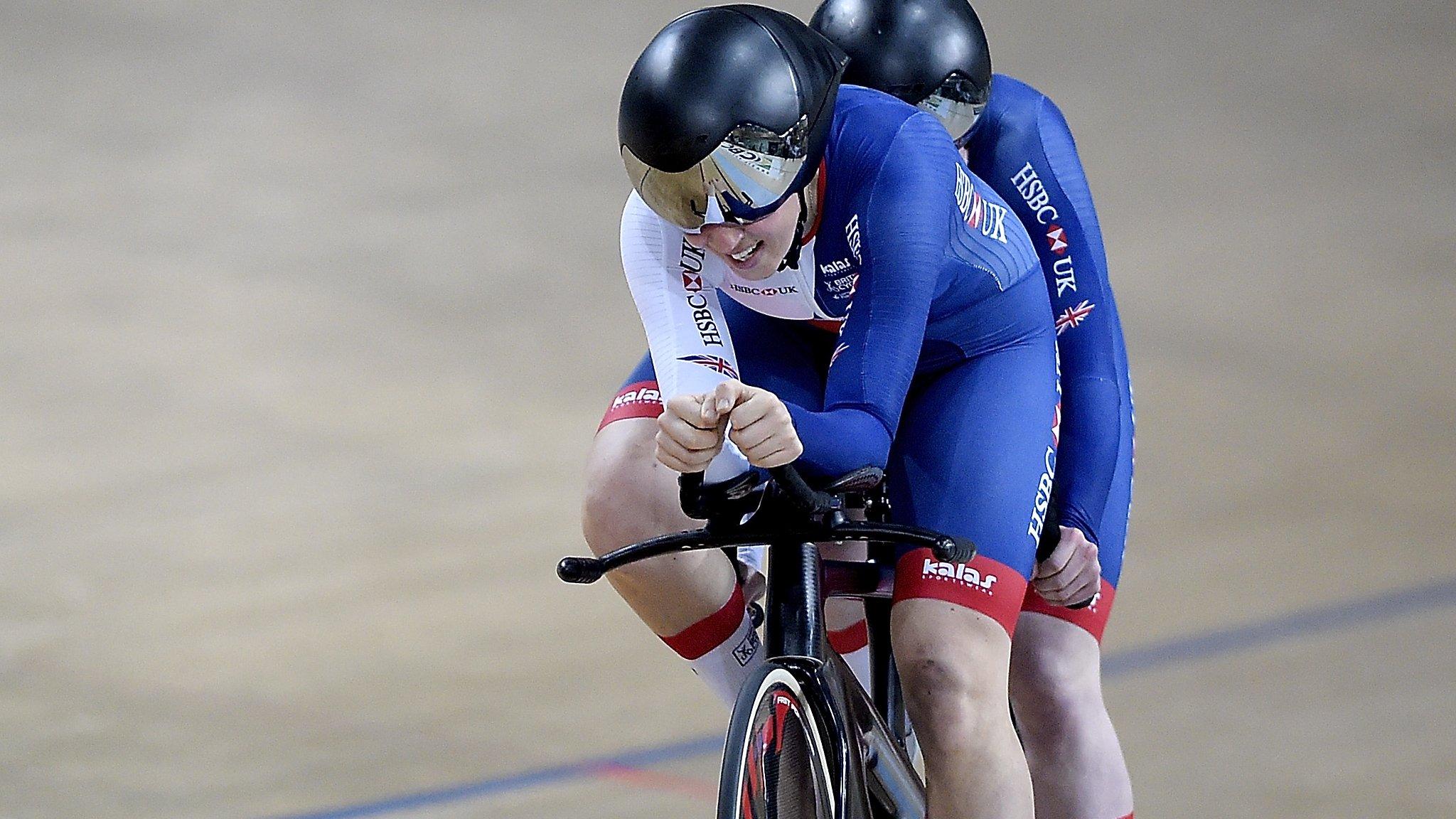Paralympian Lora Fachie shares breastfeeding struggle
- Published
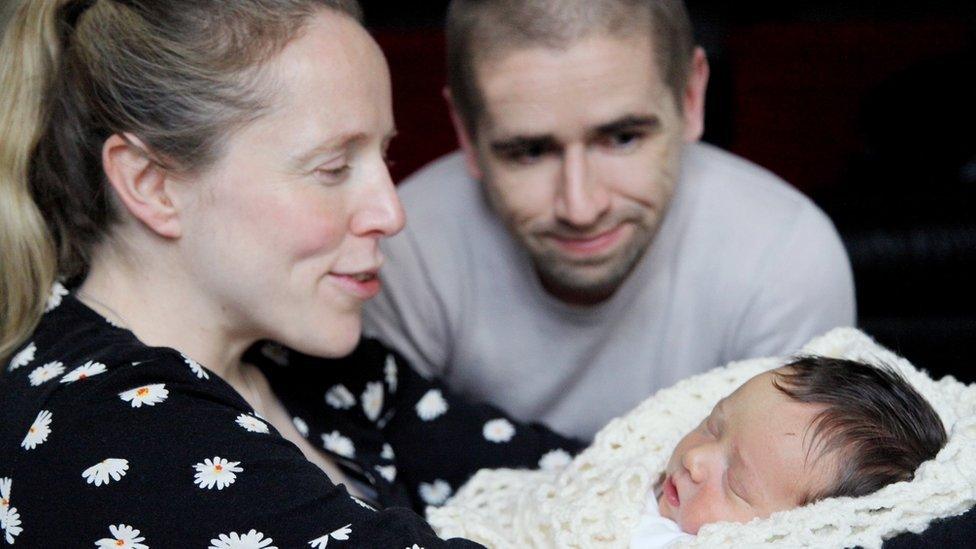
Lora and Neil Fachie welcomed baby Fraser into their family in October
Paralympic cycling gold medallist Lora Fachie has opened up about the struggle to breastfeed her baby that led her to feel like a failure.
Lora, who has a visual impairment, was a gold medal winner at the Paralympic Games in Tokyo in 2021.
Before her baby was born in October, Lora said she desperately wanted to give him "the best start in life".
But in a social media post she told of her "grief" about giving up when baby Fraser stopped gaining weight.
Lora told BBC Radio Scotland's Drivetime programme she wanted to tell her story of why she switched to formula feeding, to help other new mothers feeling pressure in the situation.
Lora wrote on Twitter: "Breastfeeding was something I dreamed about when discovering I was pregnant.
"I couldn't wait to do it, especially knowing that it was the best for my baby and I desperately wanted to give them the best start in life. I knew it would be difficult, but I relish the challenge."
Lora said she was now coming to terms with feeling like she had failed, after a late diagnosed tongue tie in her baby's mouth led to a lack of milk being produced.
Allow X content?
This article contains content provided by X. We ask for your permission before anything is loaded, as they may be using cookies and other technologies. You may want to read X’s cookie policy, external and privacy policy, external before accepting. To view this content choose ‘accept and continue’.
"We went to a lactation consultant who tried to tried to help me increase my supply and she did actually listen to me," Lora told BBC Scotland.
"Finally I felt justified because whenever I said to someone I don't think I've got enough milk for him people would go 'don't be silly'.
"I genuinely didn't have enough. He couldn't suck - he wasn't getting milk and my then body wasn't being told to produce more milk."
She added: "It just ended up being a bit of frustrating mess,"
'I'm not good at quitting'
Lora's partner Neil, the Scottish Paralympic gold medal-winning cyclist who was awarded an OBE alongside her last year, said it had been a "challenging few weeks".
Lora added: "It was like going through a grieving process because you want to breastfeed, but for one reason or another you can't.
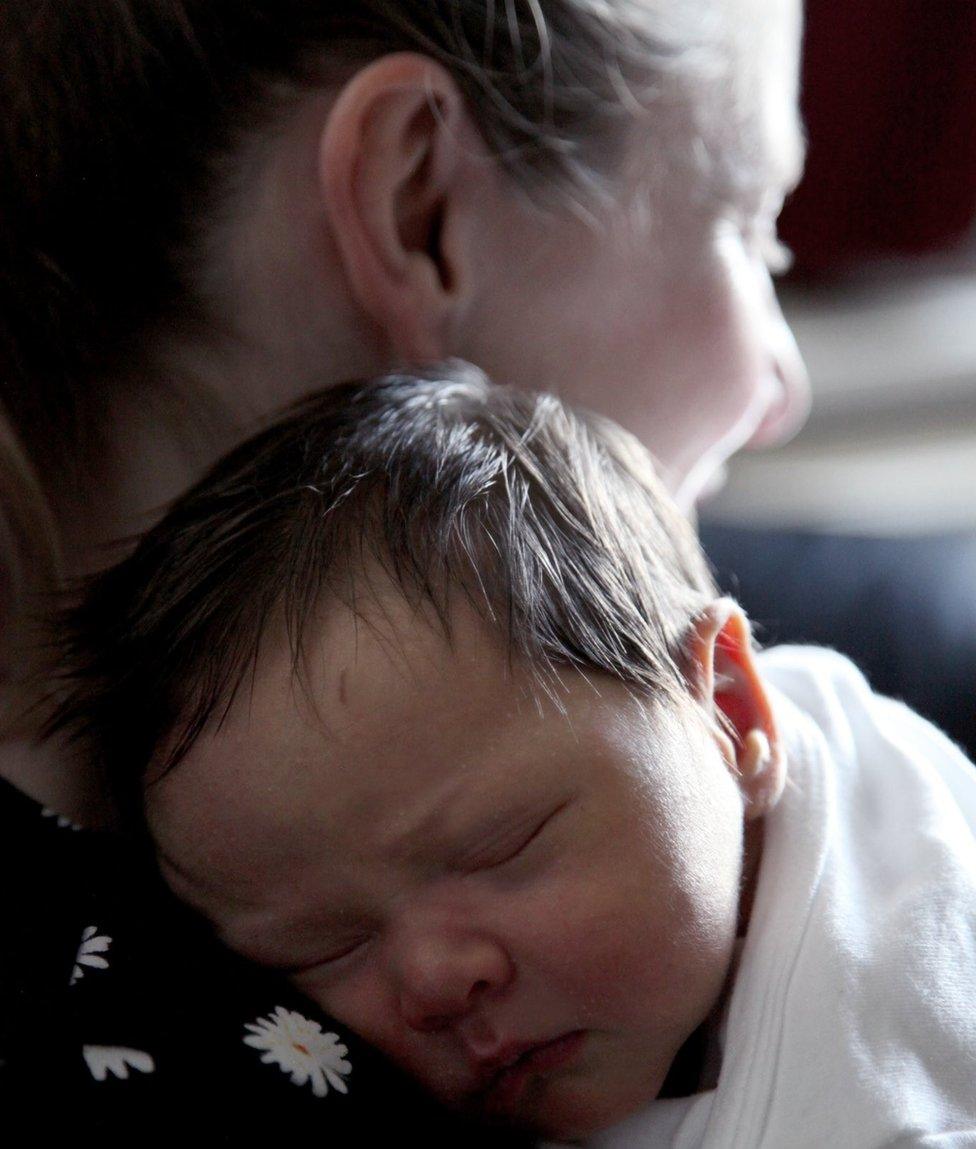
Lora said baby Fraser was happy and interacting more
"It kind of makes me feel like that if you can't breastfeed you're not one of these one of these amazing mums, you're not inspirational. But it's not true.
"Part of what I struggle with is, to do what I do with cycling and to win gold medals, you have to be resilient and determined and I guess that's where I have struggled. I'm not very good at quitting."
'A lot of women feel that sadness'
Sarah Edwards from the Breastfeeding Network said about 70% of mums in Scotland start breastfeeding but less than 50% are still feeding when their baby is six to eight weeks.
"The overall across the UK the statistic is about eight out of ten people say they stop feeding before they wanted to," she said.
"A lot of women unfortunately feel that sadness, the trauma and the grief of stopping before they wanted to."
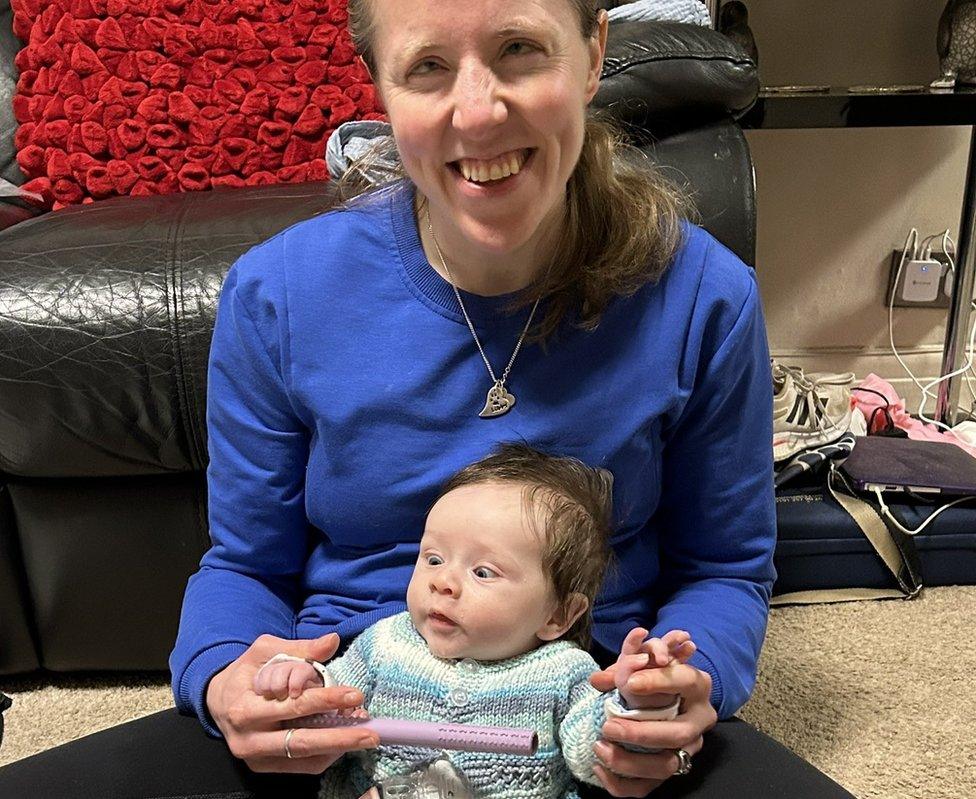
Fraser was born with a tongue tie which affected his ability to feed
She said help in Scotland was not evenly spread and can be "difficult to find".
"Scotland could be a much more breastfeeding-friendly country than it is. Women are being failed by the lack of easily accessible support and information for them to succeed with whatever breastfeeding would look like for them."
She said support for mothers could come from midwives, health visitors and specialist infant feeding teams, peer support groups and breastfeeding helplines.
"Even if you have fed for a couple of days, or a couple of hours, there is still a success in that," Ms Edwards added.
Related topics
- Published10 November 2022
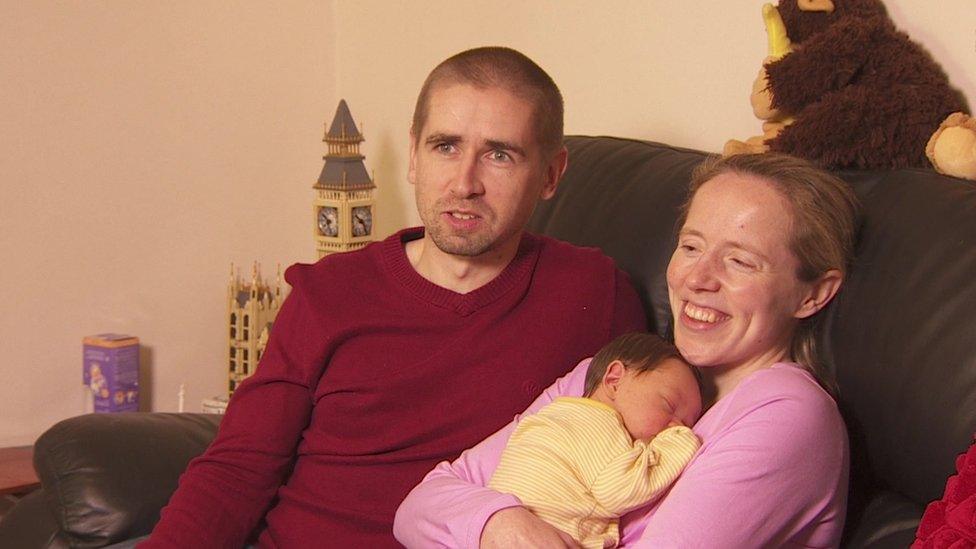
- Published14 October 2022
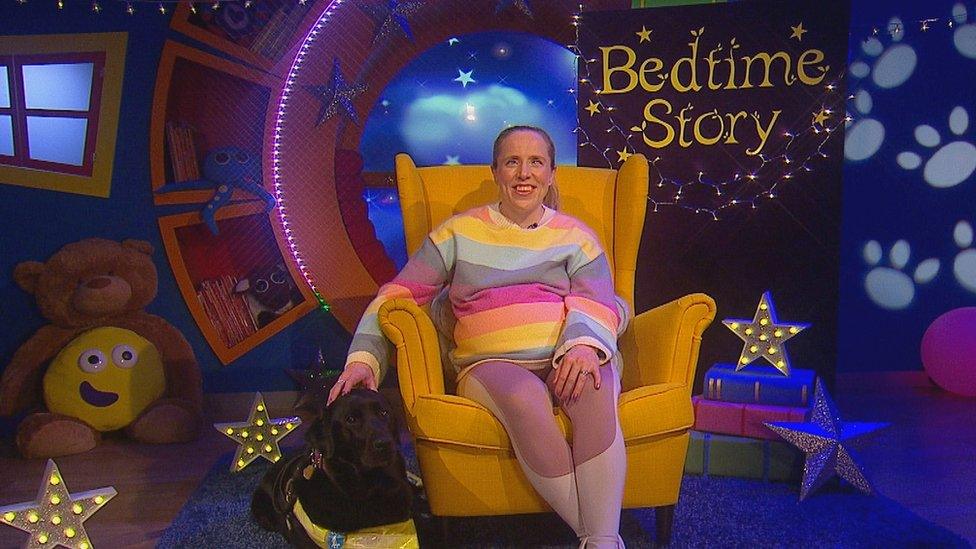
- Attribution
- Published28 August 2021
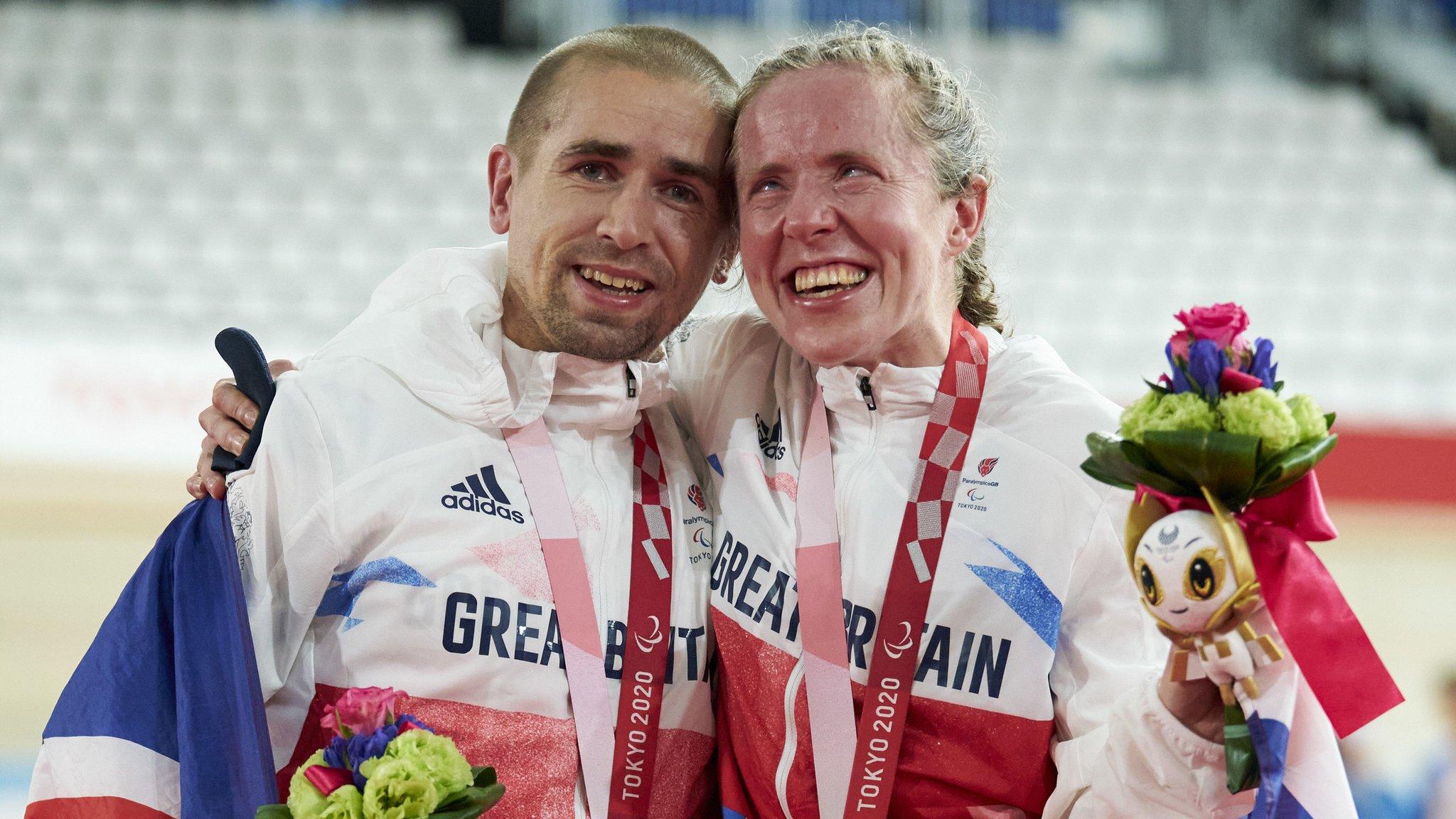
- Attribution
- Published4 August 2020
